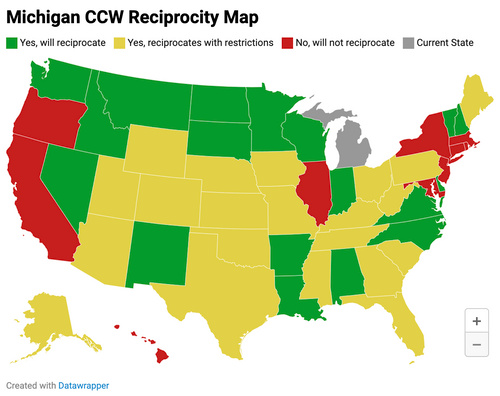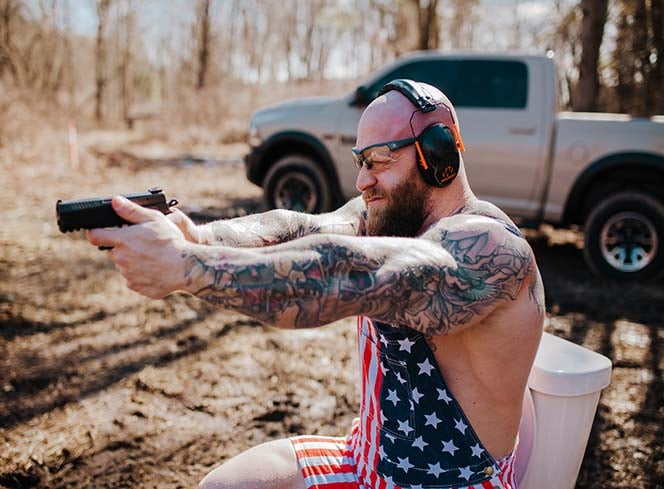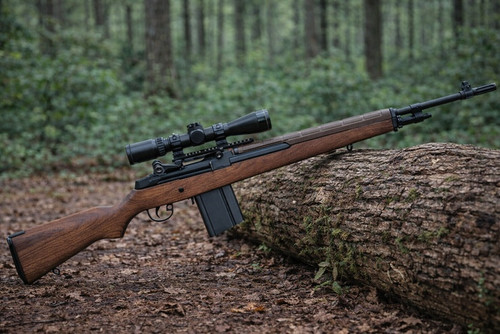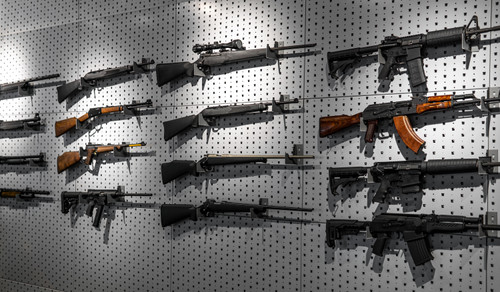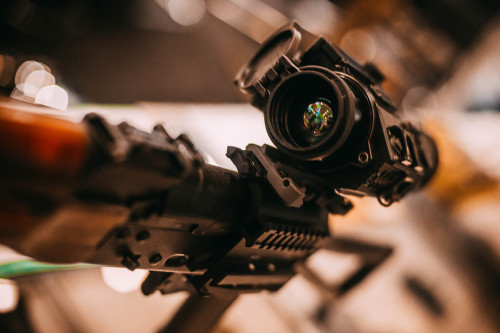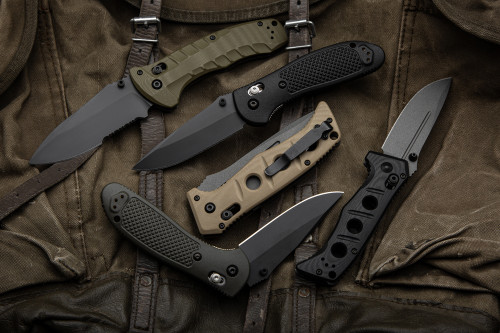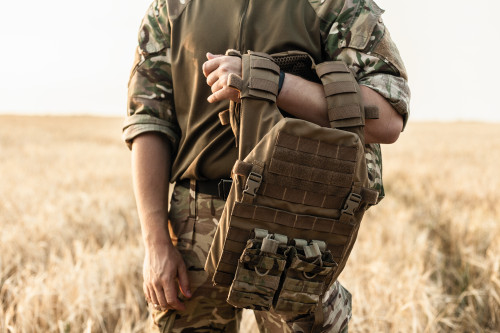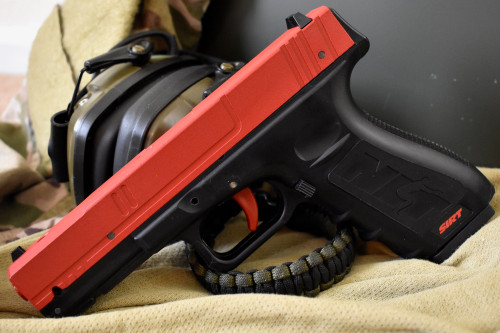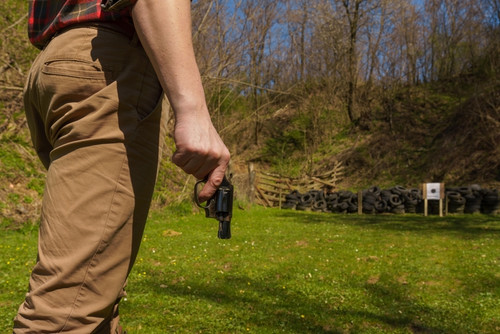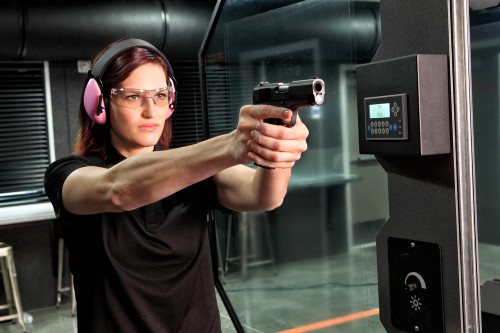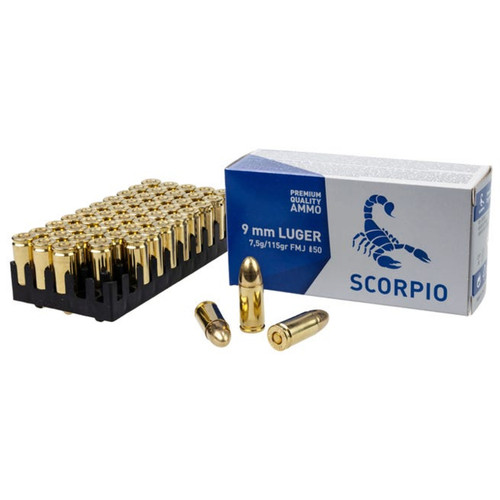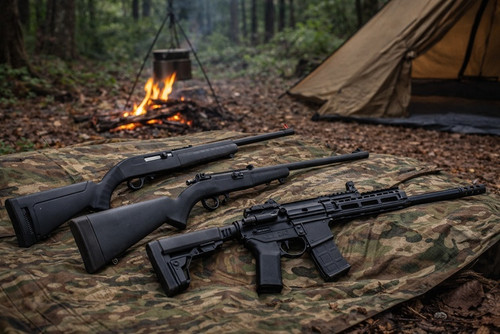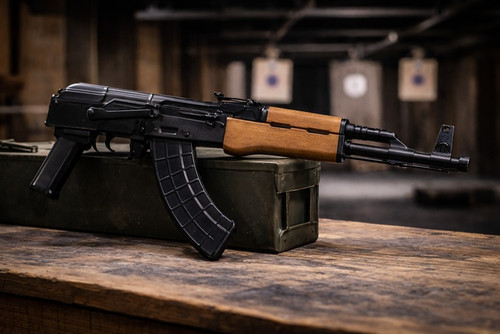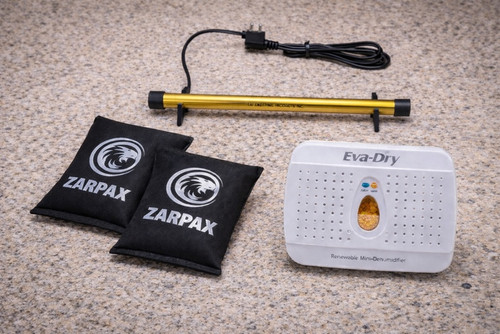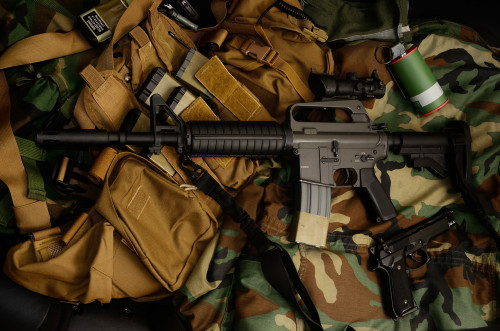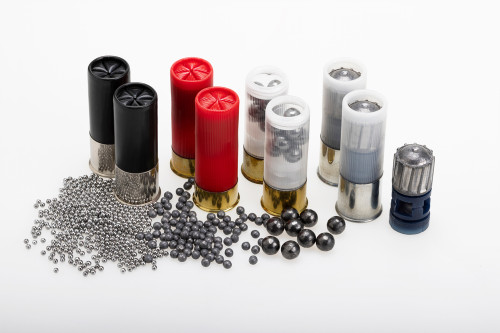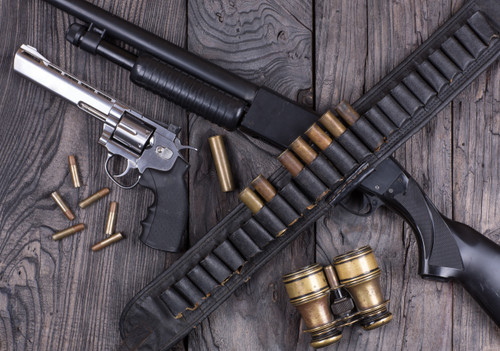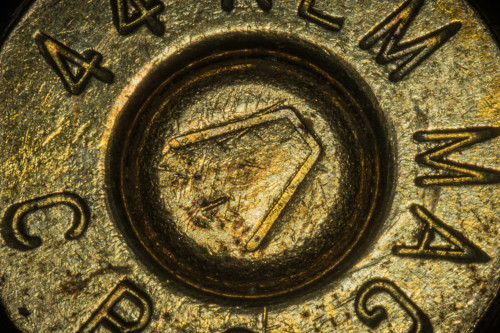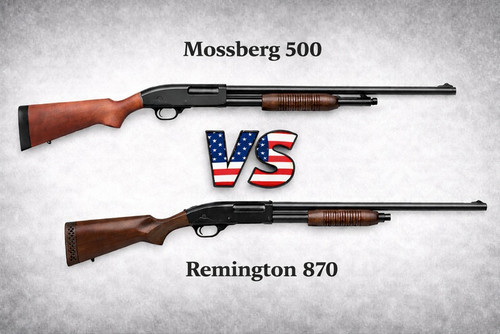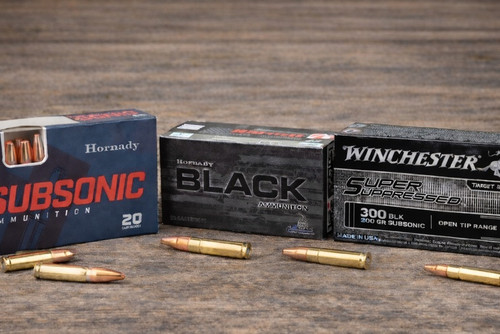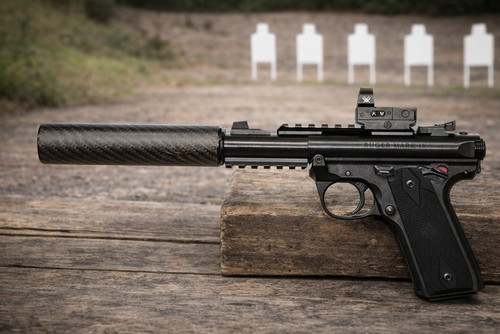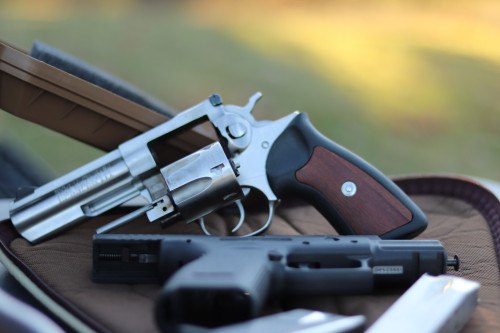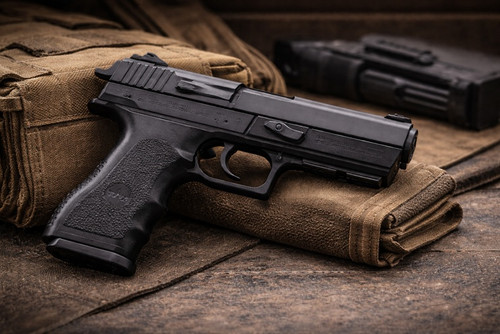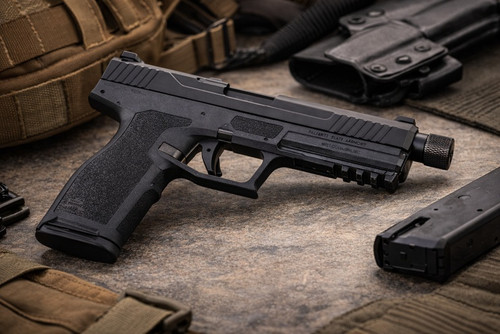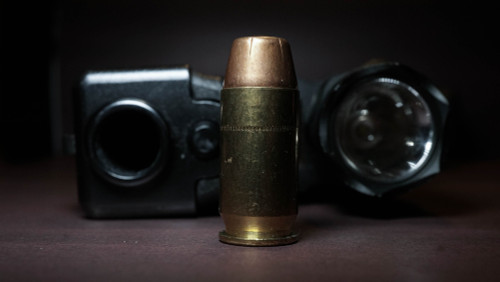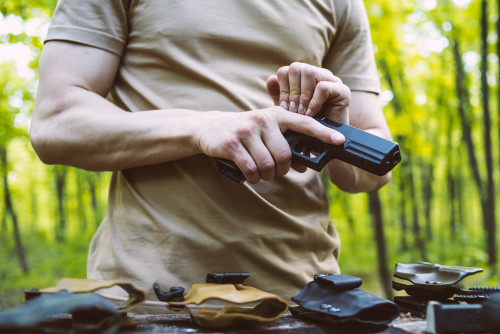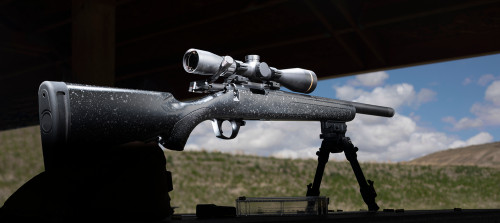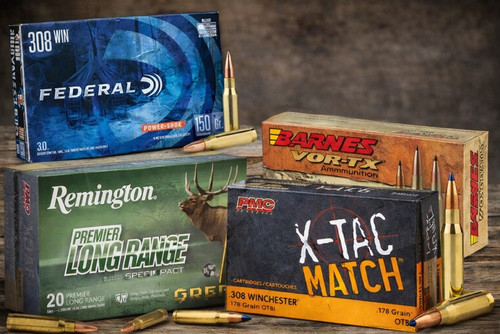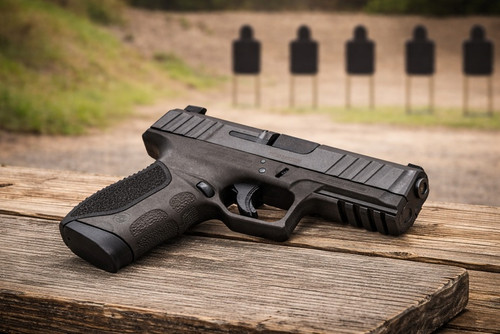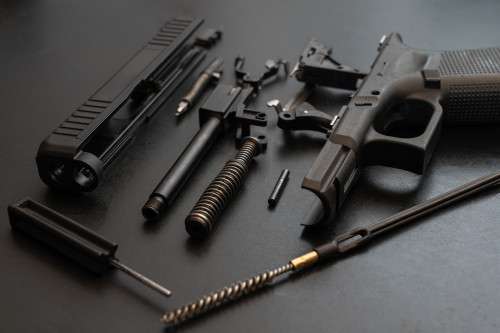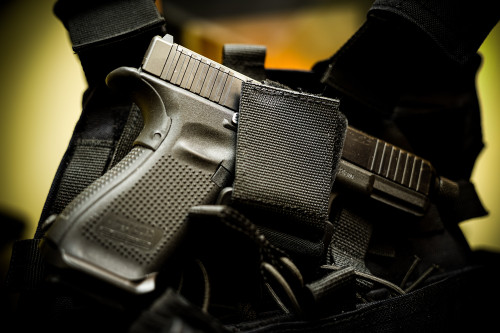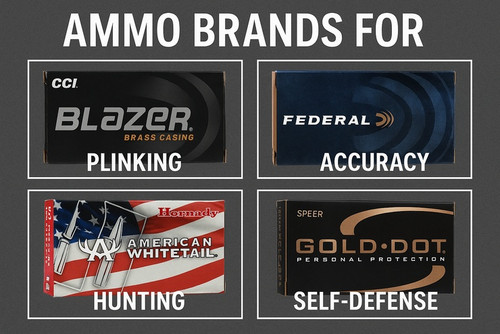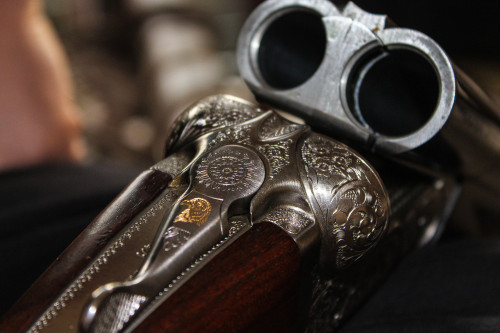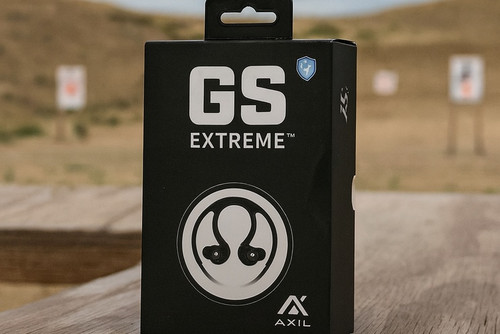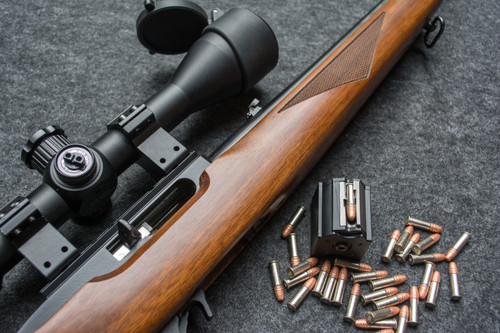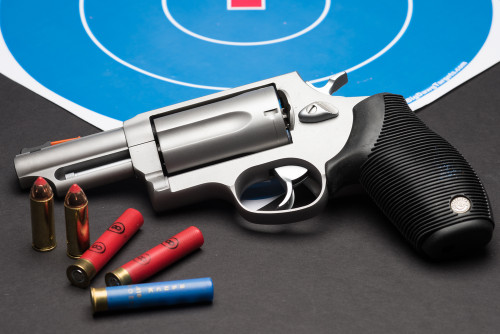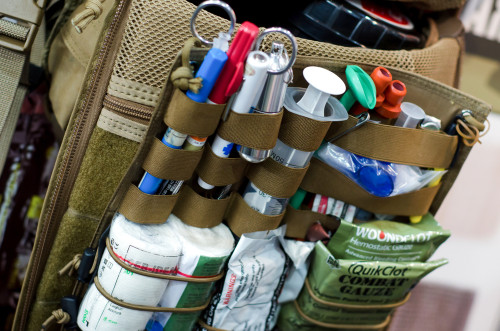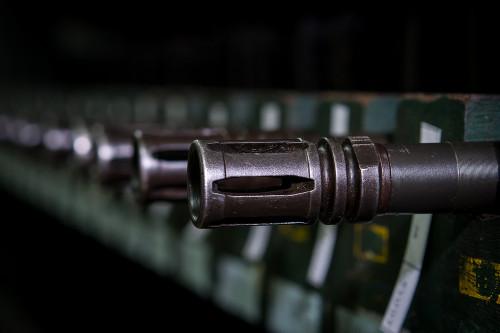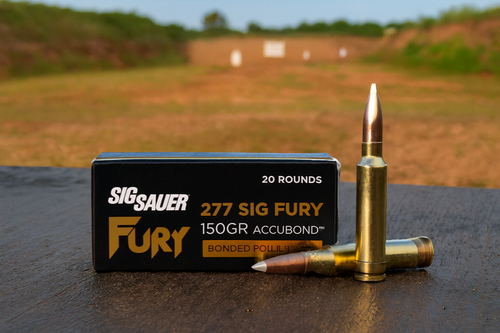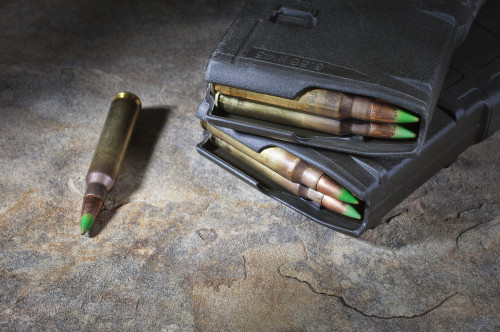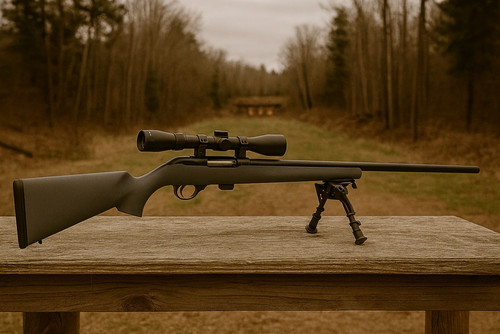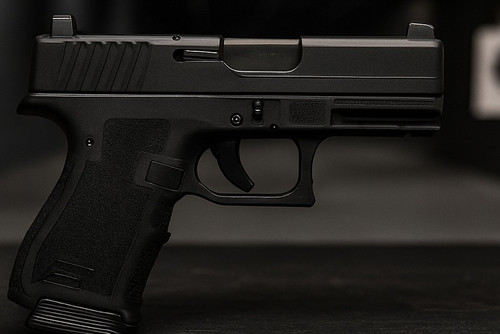With limited firearm regulations and a general pro-gun attitude, Michigan is a friendly place for gun owners and concealed carriers. But like any state in the union, there are intricacies to the gun regulations that responsible armed citizens need to know to stay on the right side of the law.
In this guide, we’ll cover everything you need to know about concealed carry in Michigan including reciprocity with other states, how to get a license, and specific rules regarding the purchase, carry, and use of a firearm in the “Great Lake State.”
Legal Disclaimer
This article doesn’t constitute legal advice. We’re communicating informally here to make this information easy to grasp and to avoid getting lost in legal mumbo jumbo. With that said, it’s the legal mumbo jumbo that may decide your fate in court. Be prepared.
We’ll be as accurate as we can, but for clarification, cross-check the information here with actual laws, which we’ve linked throughout the article. If you have additional questions or concerns, we recommend consulting with an attorney experienced in the self-defense laws of Michigan.
1. Quick Stats
- Number of other state permits honored in Michigan: 49 (plus DC and PR)
- Number of states that honor Michigan permits: 39
- Percentage of people licensed for concealed carry in Michigan: 7.6%
- Number of issued licenses in Michigan: 756,000
- Minimum age to carry a concealed firearm in Michigan: 21
- Michigan concealed carry license validity: 5 years
2. Michigan Concealed Carry Overview
This section provides an overview of concealed carry laws in Michigan.
Carry Type
Michigan is not a constitutional carry or permitless carry state. To legally carry a concealed firearm in the state, you must qualify for and obtain a Michigan Concealed Pistol License (CPL) or have a concealed carry permit from another accepted state.
Open carry is legal in Michigan for anyone over 18 years old who can legally possess a gun, though the gun must be registered in the carrier’s name.
MI Compiled Laws 28.422
Concealed Pistol License
Michigan is a shall-issue state, which means anyone who meets the qualifications can technically obtain a CPL. You don’t need to provide proof to the government that you have a particular need for a concealed firearm. CPLs are processed locally by your county clerk.
Michigan does not issue CPLs to non-residents, but the state recognizes concealed carry permits from all other states including DC and Puerto Rico. Michigan will also issue CPLs to active duty military personnel stationed in the state.
Only law enforcement has access to the concealed carry registry, and your CPL is not linked to your driver’s license. Detailed information about obtaining a CPL can be found in section 7 of this article.
MI Compiled Laws 28.421b and 28.425
Preemption
Michigan retains preemption rights over firearm laws throughout the state, superseding all local regulations. However, local governments can regulate where firearms are discharged (e.g., shooting range locations) and the carry of concealed firearms by local government employees while performing official duties.
MI Compiled Laws 123.1102–1104
Red Flag Law
In 2023, Michigan enacted a red flag law, also called an extreme risk protection order (ERPO), which prevents the subject of the order from buying, carrying, possessing, or transporting firearms. The purpose of the ERPO is to prevent imminent catastrophe (e.g., a school shooting). The ERPO typically lasts for one year.
ERPOs can be initiated by family members, law enforcement officers, and health care professionals. If approved by the court, the subject of the ERPO must surrender all firearms to law enforcement for the duration of the order. The subject is also prevented from obtaining a CPL.
MI Senate Bill 83; MI House Bill 4146, 4147, and 4148
Other Weapons
Along with firearms, the CPL allows you to legally carry a taser. You cannot carry a taser without a CPL. However, note that stun guns are illegal, regardless of your CPL status.
You can also legally carry pepper spray and/or other self-defense sprays as long as you are over 18 years old — no permit necessary.
MI Compiled Laws 750.224a and 750.224d
Magazine Limits
Michigan has no law restricting handgun magazine capacity.
Ammunition Restrictions
Armor-piercing pistol ammunition is prohibited in Michigan.
MI Compiled Laws 750.224c
3. Michigan Concealed Carry Reciprocity
Each state has different rules and licensing procedures for concealed carry. However, some states either fully or partially recognize the concealed carry permits of other states. Here’s how Michigan fits into the national concealed carry picture:
State Permits Honored by Michigan
Michigan honors permits from all other states including Washington D.C. and Puerto Rico. If you have a concealed carry permit in your home state, you can legally carry a concealed firearm in Michigan. Make sure you have the permit and a photo ID with you at all times.
Remember, it’s your responsibility to know the firearm laws in Michigan if you plan to carry there with another state’s concealed carry permit.
MI State Police Reciprocity
States Fully Honoring Michigan CPL
The states below fully honor the Michigan CPL, which means CPL holders can carry a concealed firearm in that state without seeking any additional approval. However, you must be aware of and follow the gun laws in any state you visit.
- Alabama
- Arkansas
- Delaware
- Idaho
- Indiana
- Louisiana
- Minnesota
- Montana
- Nevada
- New Hampshire
- New Mexico
- North Carolina
- North Dakota
- South Dakota
- Vermont
- Virginia
- Washington
- Wisconsin
States Partially Honoring Michigan CPL
The states below honor the Michigan CPL, but with some restrictions that vary by state. Be sure to check the conditions of the state you’re traveling to.
- Alaska
- Arizona
- Colorado
- Florida
- Georgia
- Iowa
- Kansas
- Kentucky
- Maine
- Mississippi
- Missouri
- Nebraska
- Ohio
- Oklahoma
- Pennsylvania
- South Carolina
- Tennessee
- Texas
- Utah
- West Virginia
- Wyoming
States Not Honoring Michigan CPL
These states do not honor the Michigan CPL:
- California
- Connecticut
- District of Columbia
- Hawaii
- Illinois
- Maryland
- Massachusetts
- New Jersey
- New York
- Oregon
- Puerto Rico
- Rhode Island
4. Michigan Rules for Buying a Gun
Here is an overview of the rules related to buying a handgun in Michigan.
Purchase Permit
You must be a Michigan resident to purchase a gun in the state.
To complete the purchase process, you must possess either a CPL or a License to Purchase a Pistol (LTP). The LTP is issued by local law enforcement and is valid for 30 days. To obtain an LTP, you must possess a valid Michigan ID that displays your current address.
The LTP issuing process is usually completed within 48 hours. Contact your local police or sheriff’s department for more info.
MI Compiled Laws 28.422
Background Checks
Criminal history records checks are required to buy a gun. The process is completed by the Federal Firearms Licensee (FFL) dealer facilitating the transaction, using the FBI’s National Instant Criminal Background Check System (NICS).
MI Compiled Laws 28.422a
Waiting Period
Michigan does not mandate a specific waiting period for handgun purchases. However, as you need a CPL, LTP, and an NICS background check to buy a gun, a waiting period is effectively built into the process. You can’t just buy a gun on a whim.
Registration
Michigan does not specifically require handgun registration, but all handgun sales require a Pistol Sales Record to be filed with the state police. This process will be completed by the FFL facilitating the transaction.
MI Compiled Laws 28.422a
Minimum Age for Purchase
You must be at least 18 years old to legally purchase a handgun in Michigan.
MI Compiled Laws 750.223
5. Michigan Rules for Carrying a Gun
This is an overview of rules and laws related to carrying a firearm in Michigan.
Basic Guidelines
Carrying a concealed handgun or taser in Michigan requires a Michigan CPL or a concealed carry license from another state. You must have your license and a photo ID on you at all times when carrying concealed.
No permit is required to carry a concealed firearm on your private property or at a business you own.
Open carry of firearms (not tasers) is allowed for anyone who is at least 18 years of age, can otherwise legally possess a firearm, and is carrying a gun with a sales record linked to the carrier’s name.
In this context, to “carry” means having the gun “on or about your person,” which means carrying it in a holster or having it readily accessible in something like a briefcase or backpack. This also includes having the gun accessible in your vehicle. If the gun is unloaded and locked in the trunk, you’re not “carrying” it, you’re just “possessing” or “ transporting” it.
MI Compiled Laws 28.425f
Prohibited Carry Locations
While the CPL broadly gives you the right to carry a concealed handgun, there are specific locations that are off-limits due to either state law or local ordinance.
Here are a few key locations where concealed carry of a pistol or taser is prohibited, even with a CPL:
- Schools and school property, except for parents or guardians dropping off or picking up students
- Public or private child care centers, day care centers, and child placing agencies
- Sports arenas, stadiums, or other facilities that can seat 2,500 people or more
- Bars and taverns (doesn’t apply to the owner)
- Places of worship (unless approved by presiding officials)
- Hospitals
- Colleges and universities (including dorms)
- Secure areas of airports
- Courtrooms and other places used by judicial employees
MI Compiled Laws 28.425o
Duty To Inform Police
If you come into contact with law enforcement (e.g., a traffic stop), you have a duty to inform the police that you are carrying a concealed handgun or taser. You will also need to be ready to present your CPL and a photo ID.
MI Compiled Laws 28.425f
Carrying in Vehicle
You need to have a CPL to legally carry a loaded firearm inside a vehicle. If you don’t have a CPL and need to transport a gun in your car, the gun must be unloaded, locked in a case, and kept in the trunk or otherwise inaccessible to vehicle occupants.
MI Compiled Laws 750.227 and 750.231a
Carrying While Intoxicated
You cannot carry a firearm while under the influence of drugs, alcohol, or a combination of both. In fact, simply possessing a CPL implies consent to submit to chemical intoxication analysis via breath, blood, or urine. In this case, “under the influence” means any degree of impairment that prevents safe gun handling.
Not only is this illegal, it’s also stupid. The purpose of a gun is to keep you and the people around you safe, which you can’t do if you’re high or drunk. If you want to get wasted in public, leave your gun at home and outsource your safety to more serious people.
MI Compiled Laws 28.425k
Minimum Age to Carry
You must be at least 21 years old to obtain a CPL and carry a concealed handgun in Michigan. If you’re 18 years old, you can open carry.
MI Compiled Laws 28.425b
6. Michigan Rules for Using a Gun
This is an overview of rules and laws related to using a firearm in Michigan.
Deadly Force
In Michigan, you can use deadly force if you “honestly and reasonably believe” it is necessary to prevent an imminent threat of sexual assault, great bodily harm, or death against yourself or someone else. Shooting someone with a gun is always considered deadly force whether the person who is shot actually dies or not.
The law uses the reasonable person test, which asks whether a theoretically reasonable person in the same situation would behave as you did. Additional factors such as whether the attacker was armed, your relative physical strength, your injuries sustained, and previous encounters with the assailant will all be considered in the judicial process.
Also, you can only use deadly force as long as the threat persists. If your attacker flees, you cannot shoot them in the back out of spite or revenge. That’s called “murder.”
Remember, even if you’re forced to make a split-second decision, you’ll be held accountable for that choice. The keys to legal and effective self-defense are skill development, scenario planning, and comprehensive knowledge of the law — and avoiding bad situations entirely.
Training is the only antidote we have against the mind-bending stress and insanity of gun combat. The better trained you are, the more likely you will be to make the best possible decision in the worst moment of your life.
MI Compiled Laws 780.972
Duty To Retreat
Michigan is a Stand Your Ground state, which means you do not have a duty to retreat if faced with a deadly threat anywhere you have a legal right to be. This doesn’t mean you should just start blastin’ every time someone looks at you funny. You must be able to convince the legal system that you faced an imminent threat as described above.
The right to stand your ground extends into the home, also known as Castle Doctrine. For practical purposes, the legal system generally gives you more “benefit of the doubt” when defending at home as opposed to defending in public.
NOTE: Castle doctrine doesn’t apply if the “intruder” has a legal right to be at the location. In other words, you can’t tell your significant other to get lost, and then shoot them when they return. This also protects law enforcement officers, firefighters, and emergency responders performing official duties in or around your dwelling.
MI Compiled Laws 780.973
Defense of Property
You cannot use deadly force to defend property (i.e., your stuff) because it is not technically self-defense. If you see someone stealing your car out of the driveway, you can’t legally shoot them (as much as you might want to). If your kid is in the back seat of the car, then you probably have a solid case for the use of deadly force.
MI Compiled Laws 780.972
Brandishing
It’s illegal to brandish a firearm in public for any reason other than legal self-defense. If you’re waving a gun around for any other reason, you’re going to be in trouble.
Besides, it’s important to remember that your handgun is not a tool of coercion or crowd control or to express your righteous indignation. You’re not a police officer. The only legal reason to draw your gun in public is to neutralize a dangerous goblin threatening you or others. That’s it. There are no other circumstances.
MI Compiled Laws 750.234e
Liability
If you legally use deadly force for self-defense in the context described above, you’re immune from civil prosecution.
MI Compiled Laws 600.2922b
A Note on Using Your Gun
Remember, the use of deadly force is the central issue of concealed carry. Everything else we cover here could result in fines, misdemeanors, or maybe felonies in rare cases — not life-ending stakes.
Deadly force is an entirely different level of seriousness. What you do in a split second could be the difference between going home to see your family and spending a few decades in prison. It might seem cool to carry a gun, but never forget that pulling the trigger is serious business with the highest possible stakes. If you can avoid it, you must. Prepare accordingly.
7. How To Get a Michigan CPL
The following is a step-by-step guide for obtaining a CPL in Michigan. Check out the Michigan State Police Firearms webpage for the latest information and most up-to-date requirements.
Step 1: Determine Eligibility
First, determine if you’re eligible to obtain a CPL. To be eligible, you must:
- Be at least 21 years old
- Be a US Citizen or lawful alien
- Be a legal resident of Michigan (This doesn’t apply to active-duty military personnel)
- Be a Michigan resident for at least six months prior to application (This requirement can be waived if you already possess a concealed carry permit from another state)
- Not be guilty of one of the many crimes listed here
- Not otherwise be prohibited from carrying a gun by federal law
MI State Police Concealed Pistol License Requirements
Step 2: Complete Firearms Training
Next, you need to complete a state-approved pistol safety course certified by the Michigan Commission of Law Enforcement Standards (MCOLES). Search for shooting instruction near you, and you’ll find a number of approved courses you can join.
The 8-hour course includes 5 hours of classroom instruction and 3 hours of range training. The course includes a 50-question written exam, and you need to score 70% or better to pass. The course includes instruction on the following topics:
- Safe handling and storage of handguns
- Ammunition
- Pistol function and shooting
- Shooting positions
- Firearms and concealed carry laws
- Avoiding and controlling violent confrontations
- Child safety
The training must be completed within the last 5 years prior to your application. Details of the course requirements can be found here.
Step 3: Apply for the CPL
You need to go in-person to the county clerk’s office in your county of residence and complete the application process. You can fill out the application form ahead of time, but don’t sign it yet. You will sign it at the county clerk’s office under oath.
You’ll need to include a copy of your safety training certificate as well as a passport-style photo. The application fee is $100.
MI State Police Concealed Pistol Application Instructions
Step 4: Submit Fingerprints
Once the application is filed and the fee is paid, you need to have your fingerprints taken by the county clerk. You can also have your prints taken by law enforcement or other fingerprinting services. You will need to show them your CPL application receipt, and they will forward your prints to the state police for processing.
Step 5: Wait for Notification
Once your fingerprints are submitted, the county clerk has up to 45 days to approve or deny your application. The Michigan CPL is valid for up to 5 years. The license expires on your birthday between the 4th and 5th year of validity.
8. Michigan CPL Management
Here’s how to manage your CPL once it’s active:
Renewal
The county clerk will notify you around three to six months before your CPL expires. If you receive a pin number along with your notification, you’re eligible to renew online. Otherwise, you have to renew by mail or in-person at the county clerk’s office.
You can renew your CPL as early as six months before your current license expires and as late as a year after. If you wait longer than a year, you’ll need to start from scratch. Use the same application form you used for your initial application.
Once you submit your application and pay your fee, you will receive a receipt from the county clerk which can serve as your CPL in case your current CPL expires before your new one is complete. Keep this receipt on you at all times, along with your expired CPL.
You will need to sign a statement certifying that you have completed three hours of review training and put in at least an hour of range time within the previous six months. You do not need to submit new fingerprints. The renewal fee is $115.
MI State Police CPL Renewal Information
Name & Address Change
If you move or change your name, your first step is to acquire an updated Michigan driver’s license reflecting these changes. Next, go to your issuing (or new) county clerk’s office to inform them of the changes.
Be sure to bring your new driver’s license, your CPL, and supporting documents for name changes. If they need to reprint your card, there is a $10 fee.
Lost or Stolen Permit
If your permit is lost, stolen, or destroyed, first notify your local police department and acquire a police report. Next, go to your county clerk’s office and let them know you need a replacement license. Show them your picture ID and a copy of the police report, and they will give you a replacement CPL. The fee is $10.
9. Michigan Weapons Laws FAQ
Here are some common questions regarding Michigan weapons laws and concealed carry:
Do I need a permit to buy a handgun?
Yes, you need to have either an LTP or a CPL to legally buy a handgun in Michigan.
Do I need to register my gun?
No. However, all gun sales are reported to the state police, effectively registering the gun.
Does a CPL exempt you from a background check?
No. Background checks are required for all handgun sales.
Is there a waiting period for handgun sales?
No, Michigan does not have a specific waiting period. However, as you need either an LTP or CPL, plus a background check, there is a de facto waiting period.
Can I keep a loaded handgun in my car?
Yes, with a CPL. Without a permit, the gun must be unloaded, locked in a case, and inaccessible to vehicle passengers (i.e., in the trunk).
What’s the minimum age to carry a handgun?
You must be 21 years old to carry a concealed handgun.
Can I open carry?
Yes, open carry is legal in Michigan as long as you are at least 18 years old, are carrying a gun registered in your name, and are not otherwise prohibited from possessing a gun.
Can I legally carry a knife?
The law says you cannot carry fixed, non-folding knives or daggers concealed on your person or in your vehicle. The law doesn’t mention folding knives, so one might infer that these are okay to carry concealed.
MI Compiled Laws 750.227
Can I carry a concealed handgun while hunting?
Yes, and in some cases you can actually hunt with a handgun. Be sure to check out the Michigan hunting guidelines for more information.
Pro Armory: Your Concealed Carry Equipment Supplier
As responsible concealed carriers, it’s critical we’re always legally compliant so we can protect ourselves and others should disaster strike. At Pro Armory, we believe concealed carry is your right, but only if you do so as a thoughtful, responsible citizen.
Stay prepared with the best tools to help you exercise your right to bear arms and defend yourself. We offer ammo for handguns, rifles, and shotguns — plus a variety of accessories to load out your firearms and battle belts for any situation.
Want to become a better shooter? Pro Armory also offers online firearms training to enhance your proficiency with your concealed carry weapon. Learn shooting tips, tactical maneuvers, and concealed carry best practices from veterans and other shooting experts — all from your own home. Sign up for our newsletter to be notified when training officially launches.



